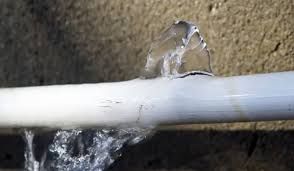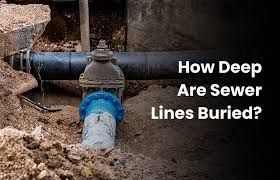Common Mistakes That Damage Your Garbage Disposal
A garbage disposal is a handy kitchen appliance, making waste disposal convenient and eco-friendly. However, like any machine, it requires proper use and care. Unfortunately, many homeowners unintentionally damage their garbage disposals due to incorrect usage or negligence. Let’s dive into the common mistakes that can harm your garbage disposal, the consequences of these errors, and how to prevent them. And remember, if your garbage disposal needs professional attention, All City Plumbers is here to help!
DIY Garbage Disposal Repair: What You Can and Can’t Do
Mistake #1: Putting the Wrong Items in the Disposal
Many people assume that a garbage disposal can handle anything thrown its way. Items like bones, fibrous vegetables (such as celery), grease, or starchy foods like pasta and rice can clog or jam the blades, reducing efficiency.
How to Avoid It:
Stick to small food scraps and avoid non-food items or tough materials. When in doubt, throw it in the trash rather than risk damage.
Mistake #2: Using Hot Water While Grinding
Running hot water while the disposal is working may seem harmless, but it can melt grease and fats, causing them to solidify further down the drain, leading to clogs. Additionally, even if you’re using hot water, it’s important to be mindful of what you’re putting down the disposal. Foods like fibrous vegetables, coffee grounds, and starchy items can create a buildup that eventually leads to blockages. Instead of relying solely on the disposal, consider composting vegetable scraps and disposing of other waste in the trash.
How to Avoid It:
Use cold water while running the disposal. Cold water keeps fats and oils solid, allowing the disposal to grind them up more effectively.
Mistake #3: Overloading the Disposal
Dumping large quantities of food waste at once can overwhelm the disposal, causing it to jam or clog the drain. This can lead to costly repairs and significant downtime while the issue is resolved. Moreover, excessive food waste can produce unpleasant odors and attract pests, further complicating the matter. To avoid these complications, it's essential to adopt a more gradual approach to disposal.
How to Avoid It:
Feed food waste into the disposal gradually, giving it time to process smaller portions effectively.
Mistake #4: Forgetting to Clean the Disposal
Neglecting to clean your garbage disposal can lead to a buildup of grease, food particles, and odors. Over time, this can affect the appliance’s efficiency and lifespan. To maintain optimal performance, it's essential to establish a regular cleaning routine for your garbage disposal. Start by running cold water through the unit for about 30 seconds before and after use to help flush away debris. Additionally, consider grinding small pieces of ice or citrus peels to help dislodge any stuck particles and leave a fresh scent.
How to Avoid It:
Clean your garbage disposal regularly by grinding ice cubes, using baking soda and vinegar, or employing a specialty cleaner designed for disposals.
Mistake #5: Ignoring Unusual Noises
If your garbage disposal starts making strange noises like grinding or humming, it could indicate a problem with the blades, a jam, or a foreign object inside. Ignoring these noises can lead to more severe damage. If you notice these sounds, the first step is to turn off the power to the disposal to prevent any injuries or further damage. After ensuring it’s safe, try to identify the source of the noise. Remove the rubber splash guard and use a flashlight to peek inside. Look for any visible obstructions, such as utensils or bones that may have fallen in. If you spot something, carefully retrieve it using tongs or pliers, avoiding direct contact with the blades.
How to Avoid It:
Turn off the disposal and check for blockages or foreign objects. If the problem persists, call All City Plumbers to inspect and repair the appliance.
Mistake #6: Using the Disposal Without Running Water
Water helps to flush food particles through the system and keeps the disposal functioning smoothly. Operating the unit without water can cause clogs and damage. Additionally, it’s important to run cold water before, during, and after the food waste disposal operation. Cold water helps solidify any fats or oils, making them easier to grind and flush away. Over time, using warm or hot water can lead to these substances sticking to the pipes, creating blockages that require more than just a simple flush to clear.
How to Avoid It:
Always run cold water while using the disposal and for a few seconds afterward to clear any remaining debris.
Mistake #7: Allowing Fats, Oils, and Grease to Go Down the Drain
These substances can solidify in the pipes, causing clogs and damage over time. They also coat the disposal’s internal parts, reducing efficiency. .As a result, regular maintenance and proper usage of garbage disposals are essential to prolong their lifespan and maintain optimal performance. Homeowners should be mindful of what goes down the drain, avoiding fibrous foods, coffee grounds, and grease, which can exacerbate the problem. Additionally, running cold water while the disposal is in use can help flush away any remaining particles, ensuring a smoother operation.
How to Avoid It:
Dispose of fats, oils, and grease in a separate container and throw them in the trash once they cool.
Mistake #8: Attempting DIY Repairs Without Proper Knowledge
While some disposal issues can be fixed with DIY methods, attempting repairs without understanding the mechanism can lead to further damage or injury. A more prudent approach is to familiarize oneself with the device's operation before embarking on any repairs. This understanding not only allows for informed decision-making but also helps in identifying the root cause of the problem. In many cases, seeking guidance from manuals, instructional videos, or professional services can provide insights that DIY methods may overlook.
How to Avoid It:
When in doubt, consult a professional plumber like All City Plumbers to diagnose and fix the problem safely.
"Why Is My Garbage Disposal Making Strange Noises?"
Consequences of These Mistakes
Making these mistakes can lead to clogged drains, damaged blades, unpleasant odors, leaks, and a shorter lifespan for your garbage disposal. Repairs or replacements can be costly, but with proper care, these issues are avoidable.
Preventive Measures for Garbage Disposal Care
Use cold water during and after use.
Clean the unit regularly with ice or cleaning solutions.
Avoid grinding hard or fibrous materials.
Feed food waste gradually.
Schedule regular maintenance with professionals like All City Plumbers.
When to Call All City Plumbers
If your garbage disposal shows signs of damage such as persistent clogs, leaks, or unusual noises, don’t wait for the problem to escalate. All City Plumbers provides expert repairs and replacements to keep your kitchen running smoothly.
Conclusion
Avoiding these common mistakes can significantly extend the life of your garbage disposal and keep it functioning efficiently. By following proper usage practices and scheduling regular maintenance, you’ll save yourself time, money, and frustration. And when professional help is needed, trust All City Plumbers to provide reliable and effective solutions for all your plumbing needs.
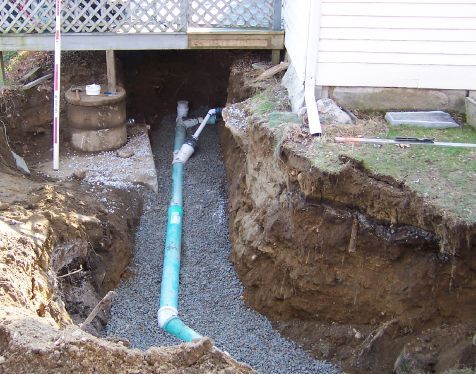
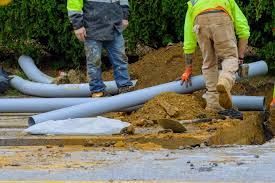
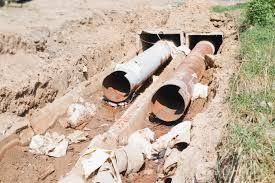
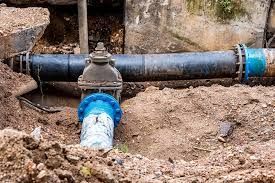

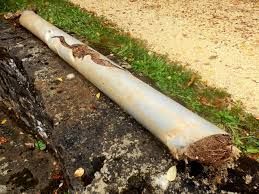
CONTACT INFORMATION
Office:
855-266-7682
Email:
service@AllCityPlumbers.com
Address: 6694 Oak Ridge Commerce Way, Austell, GA 30168
Business Hours:
Mon - Sun 24 Hours
OUR SERVICES
© 2022 All Rights Reserved|All City Plumbers Privacy Policy | Terms & Conditions | Sitemap

